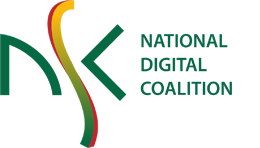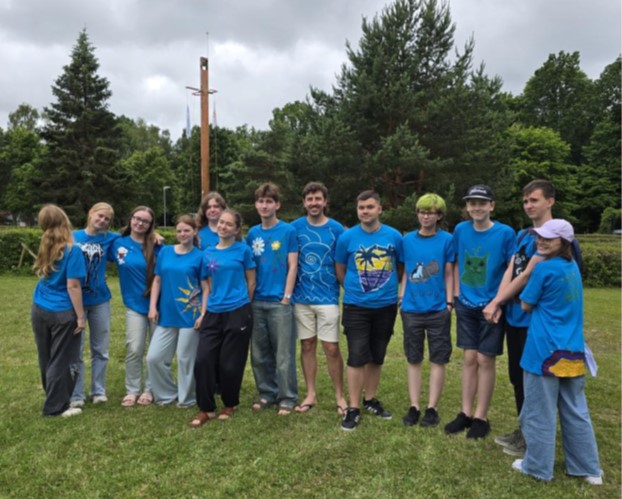
Young people from Lithuania and Latvia came together to rethink how we live online. Guided by media experts, NGO representatives, and facilitators from „Langas į ateitį” they created educational games, social media campaigns, and shared their vision for a healthier internet.
What are teens really doing online?
The participants kicked off the camp by exploring what the teens themselves brought to the table. Before arriving, each participant had completed a homework assignment: to reflect on their digital life – the words they use, the trends they follow, the tone they adopt.
One teen from Lithuania opened up about how racist content still circulates in his friend group – and how deeply it hurts, especially when it comes from people close to him. The Latvian group introduced “tone indicators” – tools used to express emotional tone in writing and help reduce misunderstandings online.
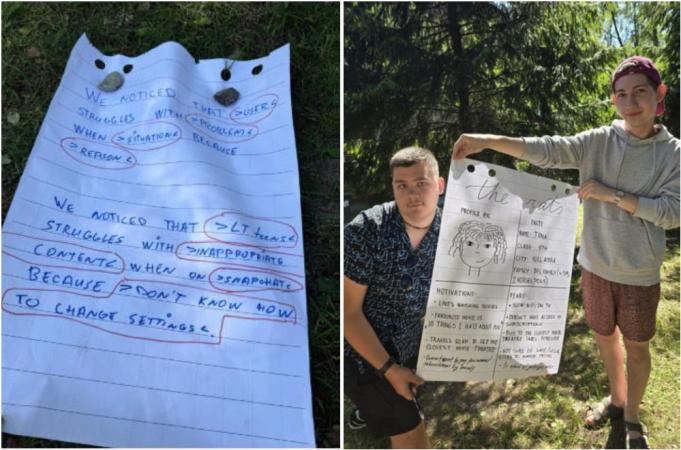
Day two was dedicated to a full-day creative challenge led by youth media expert Arminas Varanauskas. Participants designed a fictional peer – a user persona – and explored a real digital issue, like misleading links. Then they brainstormed solutions that could be implemented right away. Some teams developed social media campaigns, while others created toolkits and ideas for schools. One thing became clear: young people have more solutions than we often give them credit for.
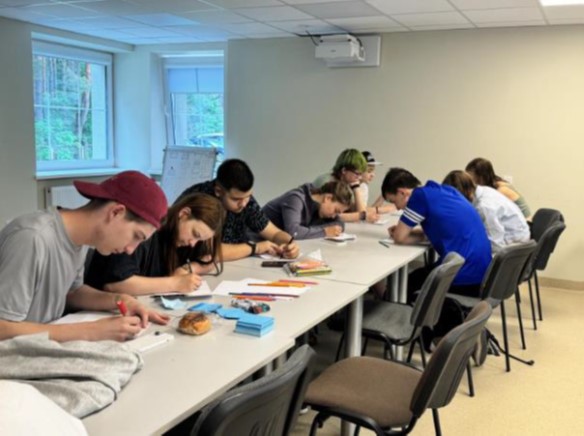
Two teams, two creative tracks
Later that day, participants split into two working groups. One team focused on creating a Q&A resource about the digital world – covering everything from algorithms and screen time to how social media affects our behavior and emotions. The second team collaborated with project leader Liudas Mikalkevičius to enhance an educational game he developed for schools – designed to teach students about safer internet habits, how to spot deepfakes, and how algorithms really work.
Talking about what usually gets left out
The day ended with a discussion session that led into a screening of the documentary Can’t Feel Nothing which explores the emotional toll of the digital age, by David Borenstein. The conversation was moderated by Dominyka Vaičiūnaitė, Draugiškas Internetas content creator.
The participants didn’t just reflect on how social media affected us in the past – they examined how it continues to shape our lives today. Is it still worth having these conversations? Or are we too tired of talking about change that never really happens? Participants imagined what the world might look like in ten years if nothing changes – if we continue on the same path of endless scrolling and passive engagement.
The teens shared personal experiences of screen addiction, difficulty focusing, and the strange tension of social media being both a comfort and a source of stress.
They envisioned what their ideal social networks would look like – spaces with less pressure, more authenticity, and a true sense of community.
Langas į ateitį: art that speaks louder than words
One afternoon, a creative session was led by a representative of Langas į ateitį Violeta Čiuplytė Bogdanovič. The participants together painted on t-shirts and stones, combining images and ideas about how the internet could become a safer, warmer space. It was one of those rare moments when words weren’t needed – everything we wanted to express came through in color and form.
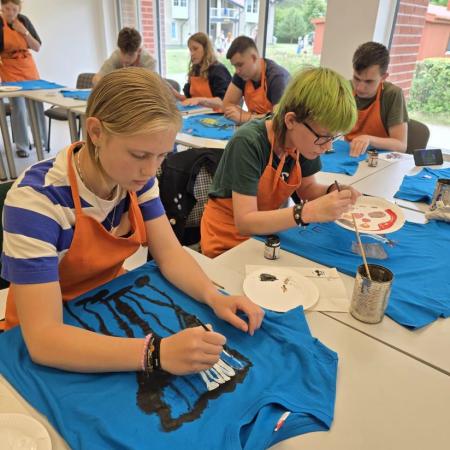
This hands-on activity brought together three core elements of the camp: offline, face-to-face connection, open reflection on the challenges young people face online, and creative thinking toward a safer digital environment.
Why this camp mattered
The camp only lasted four days – but those four days held a lot: honest conversations, creative challenges, critical thinking, and concrete actions that could lead to real change.
We didn’t just talk about the problems. We worked on solutions. Teens from two countries collaborated, learned from each other, and exchanged ideas that could transform not just their own experience online – but all of ours.
Lessons Learned
- Young people are powerful agents of change. When given space, tools, and encouragement, they create meaningful, empathetic, and visually compelling messages about online safety.
- Cross‑border collaboration enriches learning. Participants could compare experiences, identify shared challenges, and co‑create solutions.
- Creative methods outperform traditional lectures. Video production, storytelling, group discussions, and hands‑on workshops helped participants internalize the topics more deeply.
- Emotional safety is essential. A supportive environment enabled young people to openly discuss their experiences with online harm.
- Youth ownership increases impact. When young people design safety messages themselves, the content becomes more authentic and relatable to their peers.
Transferability to Other Countries and Cultural Contexts
This initiative has strong potential for international replication because online safety, empathy, and cyberbullying prevention are universal issues.
Easily transferable elements
- Creative youth workshops. Video creation, campaign design, and collaborative activities work well across cultures.
- Cross‑regional or cross‑country cooperation. Bringing together young people from different areas fosters broader perspectives.
- Universal themes. Online kindness, safety, critical thinking, and responsible communication are relevant everywhere.
Elements requiring adaptation
- Cultural narratives. Forms of cyberbullying, online behaviour norms, and platform popularity differ between countries.
- Legal frameworks. Regulations on minors’ protection, data privacy, and harmful content vary.
- Language and communication style. Youth‑created content must be localized to remain authentic and impactful.
Where the initiative would be especially valuable
- In countries where youth are highly active on social media
- In regions facing growing issues with cyberbullying or online hate
- In communities lacking youth‑focused media literacy programmes
Draugiškas internetas (Lithuania) and Drošāka Interneta Centrs (Latvia) are projects co-funded by the European Union.
